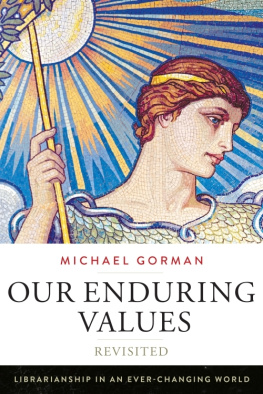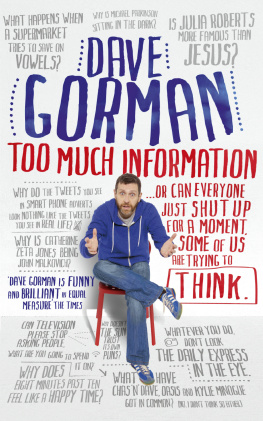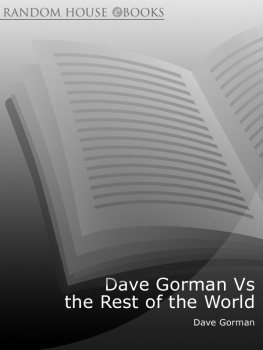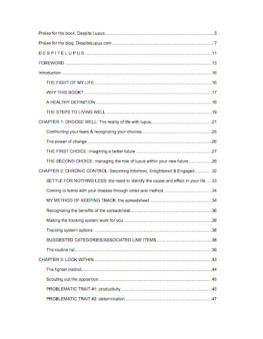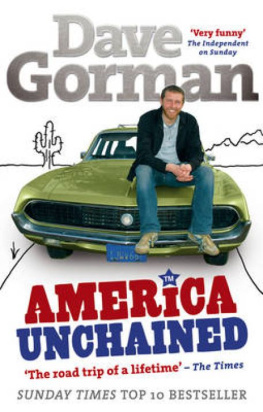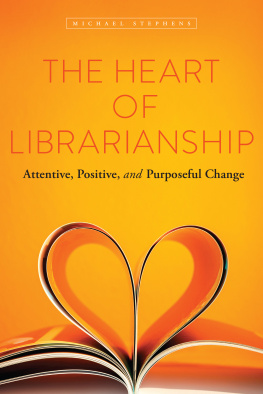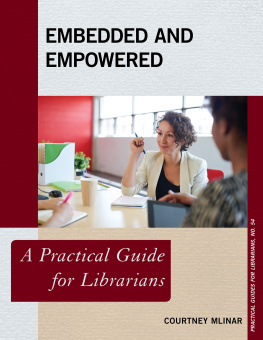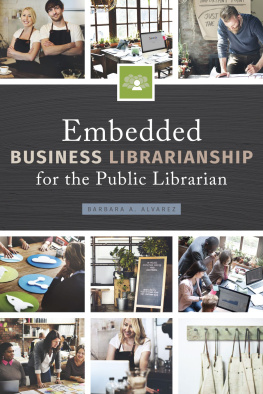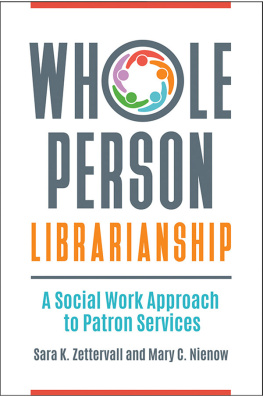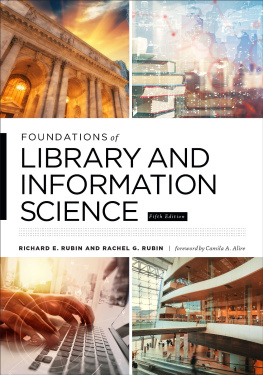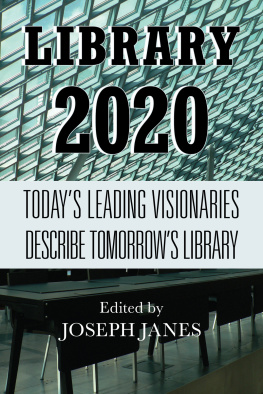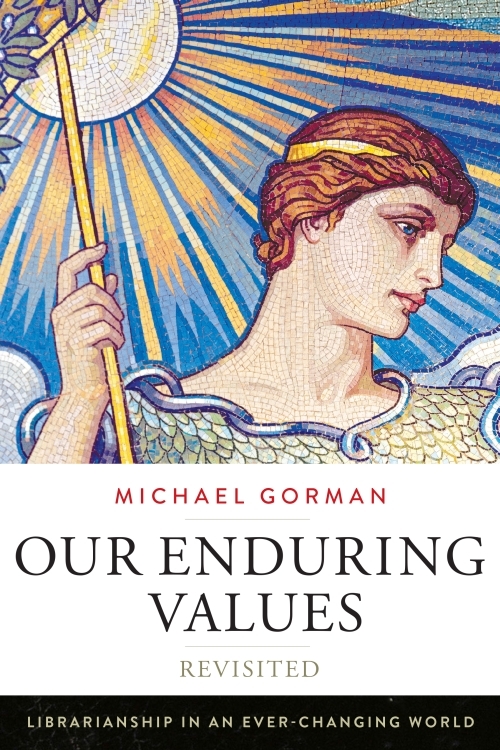
ALA Editions purchases fund advocacy, awareness, and accreditation programs for library professionals worldwide.
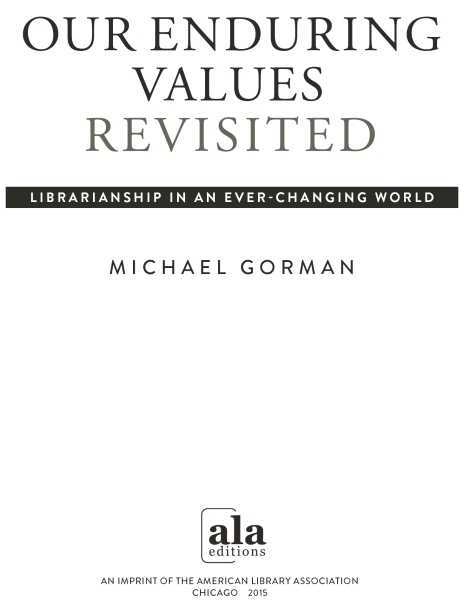
MICHAEL GORMAN, the former dean of library services at the Henry Madden Library, California State University, Fresno, served as president of the American Library Association in 20052006. He was the first editor of the Anglo-American cataloging rules, second edition (1978), and of the 1988 revision of that work. He is the author of numerous books, including Our enduring values (2000), the winner of ALAs Highsmith Award in 2001 for the best book on librarianship. Gorman has been the recipient of numerous awards, including the Margaret Mann Citation in 1979 and the Melvil Dewey Medal in 1992.
2015 by Michael Gorman
Extensive effort has gone into ensuring the reliability of the information in this book; however, the publisher makes no warranty, express or implied, with respect to the material contained herein.
ISBNs
978-0-8389-1300-0 (paper)
978-0-8389-1305-5 (PDF)
978-0-8389-1306-2 (ePub)
978-0-8389-1307-9 (Kindle)
Library of Congress Cataloging-in-Publication Data
Gorman, Michael, 1941
Our enduring values revisited : librarianship in an ever-changing world / Michael Gorman.
pages cm
Includes bibliographical references and .
ISBN 978-0-8389-1300-0 (print : alk. paper)ISBN 978-0-8389-1306-2 (epub)ISBN 978-0-8389-1305-5 (pdf)ISBN 978-0-8389-1307-9 (kindle) 1. LibrariesAims and objectivesUnited States. 2. Library scienceMoral and ethical aspectsUnited States. 3. LibrariansProfessional ethicsUnited States. 4. LibrariansEffect of technological innovations onUnited States. I. Title.
Z716.4.G673 2015
027.073dc23 2014040989
About the cover: Presiding over the Library of Congress from a central position is Minerva, the Roman Goddess of learning and wisdom. In this mosaic by Elihu Vedder, she is portrayed as the Minerva of Peace and appears as the guardian of civilization with her armor partly laid aside. Image and description courtesy of the Library of Congress; photograph by Carol M. Highsmith. Cover design by Kimberly Thornton.
This book is dedicated to the memory
of my brother
DAVID GORMAN
19462005
and my friends
COLIN ANDREW
19332013
JOHN GARFORTH
19342014
BRYAN McENROE
19412011
Let their memory be a blessing.
Contents
I thank Tony Molaro, LIS educator, for suggesting this book; Rachel Chance, acquisitions editor at ALA Editions, for her encouragement at each stage of this project; my skillful copy editor Johanna Rosenbohm; Kim Thornton, designer of the cover; Alejandra Diaz, designer of the book; and Don Chatham, ALA Associate Executive Director for Publishing.
Most of all, I thank my wife, Anne Reuland, for too many things to list.
The World Turned Right Side Up?
T here is no shortage of people prophesying the death of libraries, some with glee, some with sadness, and some just consumed by techno-lust and laissez-faire economics. One such is someone called Tim Worstall, who called, in Forbes, the magazine for greed-heads, for the closing of public libraries; those libraries to be replaced by free subscriptions to Kindle Unlimitedan transform citizens from consumers to makers and society from a culture of waste and landfills to a culture of recycling and conservation.
I wrote Our enduring values in the late 1990s. It was published by ALA in 2000, the last year of the twentieth century and of the second millennium of the Common Era. In the decade and a half since, the world has endured the savagery of September 11, 2001; the deaths of millions in wars and other conflicts, many waged in and over the cobbled-together countries that are the poisonous legacy of colonialism and imperialism; the almost complete collapse of the postWorld War II financial architecture and the Great Recession that cupidity-fueled collapse caused; the ideologically and economically driven sustained attack on the public services of which libraries are such an ornament; the economic rise of China, run by communists who are much better at capitalism than the capitalists of the West; the looming and multifaceted environmental challenges of anthropomorphic climate change; the promise of the Arab Spring and its repression; and a variety of other unsettling global and national societal happenings and trends. Since I wrote that book, we have been blessed (or otherwise?) with iPod and iTunes (2001); Facebook (2004); YouTube (2005); Twitter (2006); the mass adoption of smartphones and streaming video (2003); devices for downloading and reading e-books, such as the Amazon Kindle (2007) and Barnes & Noble Nook (2009); the enormous economic reach of the advertising-company-with-a-search-engine Google, which has contrived to hit brand gold by becoming a verb that is the near-universal substitute for use a search engine; Wikipedia (2001) and the whole social media, hive-mind, crowd-sourcing, wisdom of the crowds thing, felicitously summed up as digital Maoism by Jaron Lanier; a huge and lucrative videogame industry; giant flat-screen digital televisions foreshadowed by Ray Bradbury (and the Jetsons) decades before; three-dimensional printing (relatively inexpensive consumer devices available since 2010)all these, variations on them, and many more digital innovations great and small adding up to a complex world with endless opportunities for infotainment, commercial exploitation on a massive scale, andto put the case for positive resultsthe creation of giant, ever-connected communities and new dimensions of education and creativity.
No library is an island, and libraries and the practice of librarianship have been rocked, socked, shaken, and stirred by all these societal, economic, and technological changes. Very few libraries can say that they are better off than they were before the Great Recession eight years ago, and manyor even mostwill tell you they are much worse off. Many of our colleagues have lost their jobs; many have had to take jobs that pay substantially less than they and their contributions are worth; and many graduates of LIS programs cannot find jobs, have had to take part-time positions, or have had to move to places far from where they really want to live. For the first time in my more than fifty library years, I have hesitated when asked if I would recommend someone to enter an LIS masters program. All this when public libraries are increasingly societys only serious attempt to bridge the digital divide that threatens to deny the advantages of the brave new technological world to the poor, the rural, the armies of the unemployed, and all the others whose noses are pressed up against the windows of the glittering salons of the digerati. All this when academic libraries are under the unprecedented strain of trying to do more with shrunken budgets, aggravated by the pressure of managements and IT departments obsessed with shiny and new tools and lacking any idea of the ends to which their digital means are to be applied. All this when cuts in government spending and savage corporate retrenchments have attenuated or abolished many special libraries. So it goes, but libraries battle on, boats against the current, continuing to do good work and serve individuals and communities.
In the preface to Our enduring values, I wrote of the defeated British and German troops marching away after the surrender of Cornwallis in Yorktown in October 1781. They played an old British march called The world turned upside down. Fifteen years ago, I wondered if the world of libraries had been turned upside down and if the time had come for librarians to beat a retreat. I did not believe that then, and I do not believe that now. The ideas that the digital revolution has made libraries irrelevant, that libraries can no longer be afforded, or that libraries are no longer needed seem, at best, based on ignorance and the willful avoidance of realities and, at worst, the malign triumph of ignorance, materialism, and philistinism. I believe that librarians have a duty, now more than ever, to organize convincing rebuttals to those arguments and to revisit the values that inform our profession. That is why I have revisited and updated a book from the last years of the twentieth century.

